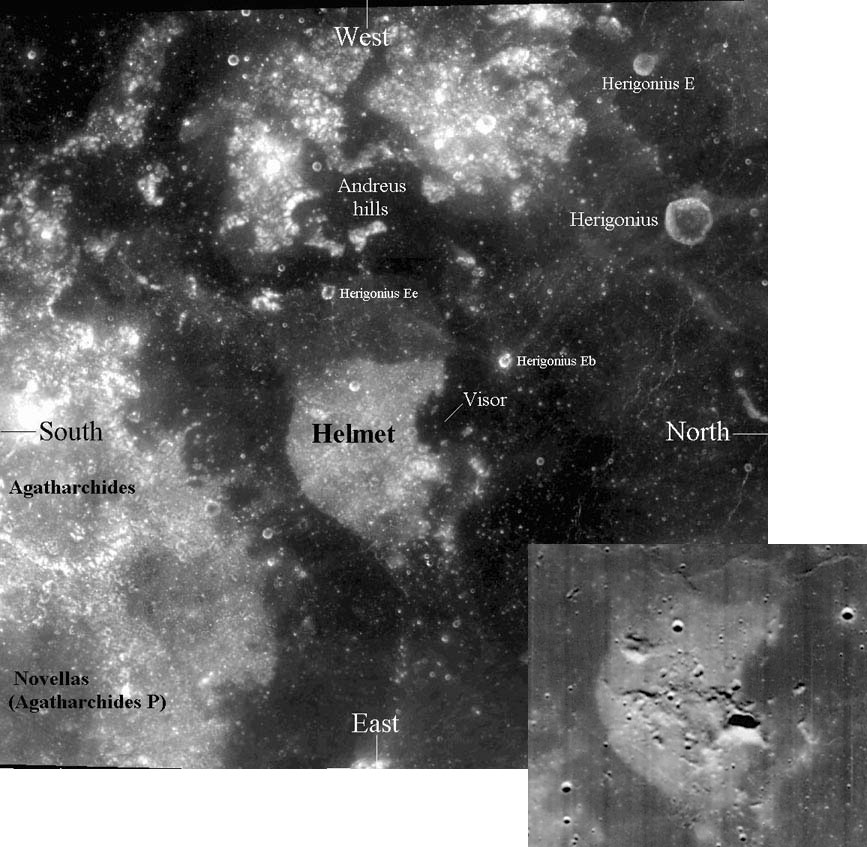
Clementine image annotated by Danny Caes, Ghent-Belgium; Lunar Orbiter IV-132-h2 at bottom right; images have north to the right.
Most lunar features are related to impact cratering or mare volcanism, but a few oddballs have a different history. A nondescript patch between maria Humorum and Cognitum, called The Helmet (which attracted Danny’s interest because of his fascination with informal lunar names) came to my attention in 1975 because of its strange color. Not as seen visually, but as mapped by lunar scientists imaging in different wavelengths. The Helmet has a relatively high albedo and absorbs strongly in the UV - this means that it is bright at the red end of the spectrum. About a dozen such red spots are known, including the studies that show that the hilly parts have a composition very similar to the Gruithuisen domes. The Helmet and other red spots demonstrate that volcanism very different from mare basalts has occurred on the Moon. Wouldn’t it be great to have a high resolution, low Sun amateur image of this odd feature?
Related Links:
Rükl plate 52
Clementine false color image
Yesterday's LPOD: A Third Gander at Neander
Tomorrow's LPOD: A Colorful Helmet
COMMENTS?
Register, Log in, and join in the comments.



